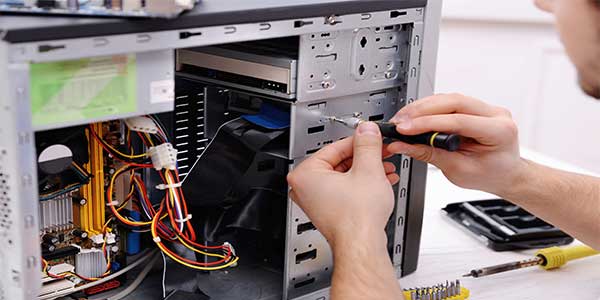Global S&T Development Trend Analysis Platform of Resources and Environment
| How Businesses Can Handle E-Waste | |
| admin | |
| 2020-09-30 | |
| 发布年 | 2020 |
| 语种 | 英语 |
| 国家 | 美国 |
| 领域 | 资源环境 |
| 正文(英文) | 
Making repairs, finding a reputable recycling company, donating older products and cutting down on purchases are just a few ways businesses can manage their e-waste problem. We generate more electronic waste today than ever before in history. Companies are being held accountable for what they do with their trash, including e-waste. New computers and software can be key to a successful business, but what happens to the old monitors and hard drives that are no longer needed? Electronic waste accounts for only 2% of debris in landfills but contributes two-thirds of heavy metal toxins, making it one of the main contributors to toxic leaching. These metals break down in the soil, emitting dangerous gases harmful to humans and the environment. Businesses contribute a huge amount of e-waste, and in the past, many simply took it to the landfill or had it illegally dumped. In the face of climate change, companies must find new, sustainable ways to handle e-waste. Making repairs, finding a reputable recycling company, donating older products and cutting down on purchases are just a few ways businesses can manage their e-waste problem. Make Repairs Sometimes laptops become irreparably damaged, or the projector you used for trade shows no longer works. However, many electronics can be easily repaired rather than replaced. In today's market, consumers are bombarded with advertisements for new and improved electronics. Instead of declaring products obsolete after just a couple of years, companies should invest in long-lasting equipment that's more sustainable than devices that need updating each year. Repairing office equipment and electronics is not only an eco-friendly solution to e-waste, but it can also save businesses money. In most cases, the cost of repairing equipment is significantly lower than replacing it. Find a Recycling Company About 60% of electronic waste ends up in landfills, contaminating the soil with toxins like mercury and lead. However, recycling e-waste is not always easy. Unlike regular recycling, it often requires special service. Additionally, many developed countries, such as the United States, have a history of shipping e-waste to impoverished areas where products are not responsibly recycled. The impact of inefficient recycling is not only environmental, but also social. In Guiyu, China, one of the most polluted cities in the world, individuals break apart electronics to salvage internal parts, often threatening human health. An estimated 20-50 million tons of e-waste are produced annually, and this number is only growing. Donate Older Products When performing an office wide software update or expanding your team, you may find you need to get rid of electronics that are still usable. If this is the case, donating older products can be an easy solution. Reach out to local schools or charities and see if any vulnerable populations need equipment. Donating, rather than discarding, is a fantastic way to handle e-waste. Depending on the donation, you may also qualify for tax deductions as a bonus of responsibly reusing older electronics. Minimize Unnecessary Purchases The first step toward sustainable waste management is creating less trash in the first place. If businesses focus on minimizing unnecessary or unneeded electronic purchases from the beginning, the amount of waste left to handle will decrease. Involving employees in the decision-making process may be an ideal place to start. Many businesses require specific electronics to complete job functions. For example, if you work in interior design, you may need a portable laptop with a drawing feature that allows you to create artwork for clients. If you are presented with a computer that does not have these functions, it will not be used. Employers can reduce waste by making sure products meet employee needs in the first place. Managing Electronic Waste The environmental impact of e-waste is significant. Businesses can save money and build sustainability practices by responsibly managing it. Minimizing unnecessary purchases, donating items, partnering with a reputable recycling company and repairing electronics are just a few ways companies can handle e-waste disposal. |
| URL | 查看原文 |
| 来源平台 | Environmental Protection |
| 文献类型 | 新闻 |
| 条目标识符 | http://119.78.100.173/C666/handle/2XK7JSWQ/296664 |
| 专题 | 资源环境科学 |
| 推荐引用方式 GB/T 7714 | admin. How Businesses Can Handle E-Waste. 2020. |
| 条目包含的文件 | 条目无相关文件。 | |||||
| 个性服务 |
| 推荐该条目 |
| 保存到收藏夹 |
| 查看访问统计 |
| 导出为Endnote文件 |
| 谷歌学术 |
| 谷歌学术中相似的文章 |
| [admin]的文章 |
| 百度学术 |
| 百度学术中相似的文章 |
| [admin]的文章 |
| 必应学术 |
| 必应学术中相似的文章 |
| [admin]的文章 |
| 相关权益政策 |
| 暂无数据 |
| 收藏/分享 |
除非特别说明,本系统中所有内容都受版权保护,并保留所有权利。
修改评论